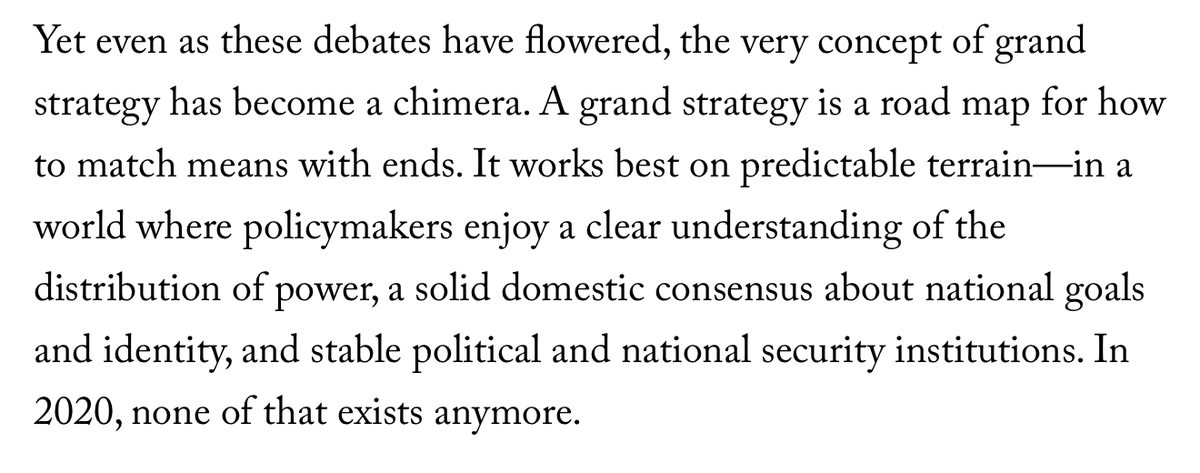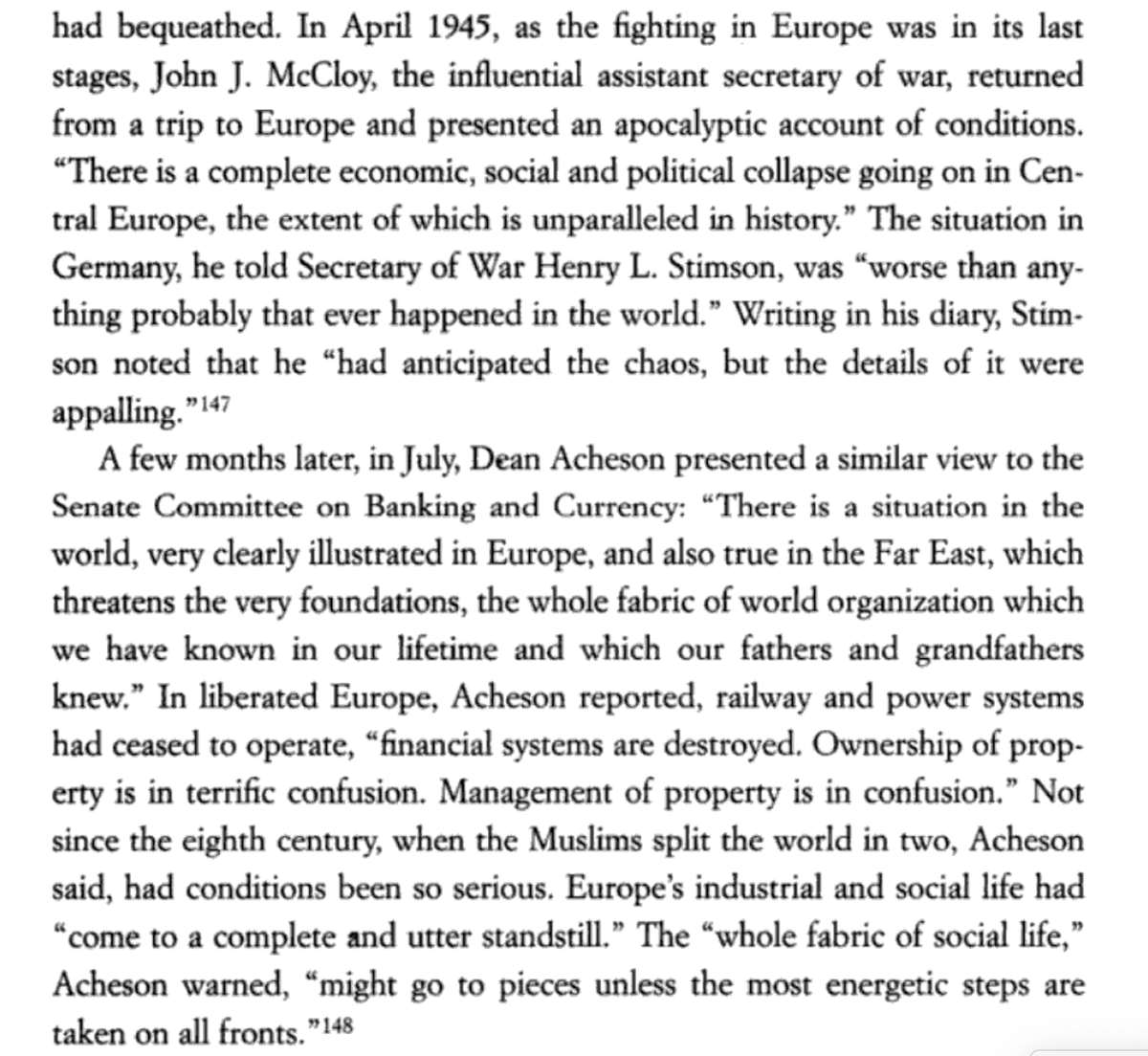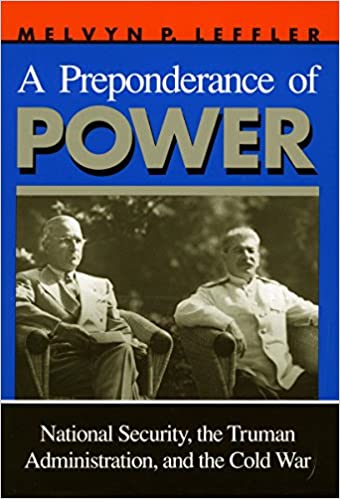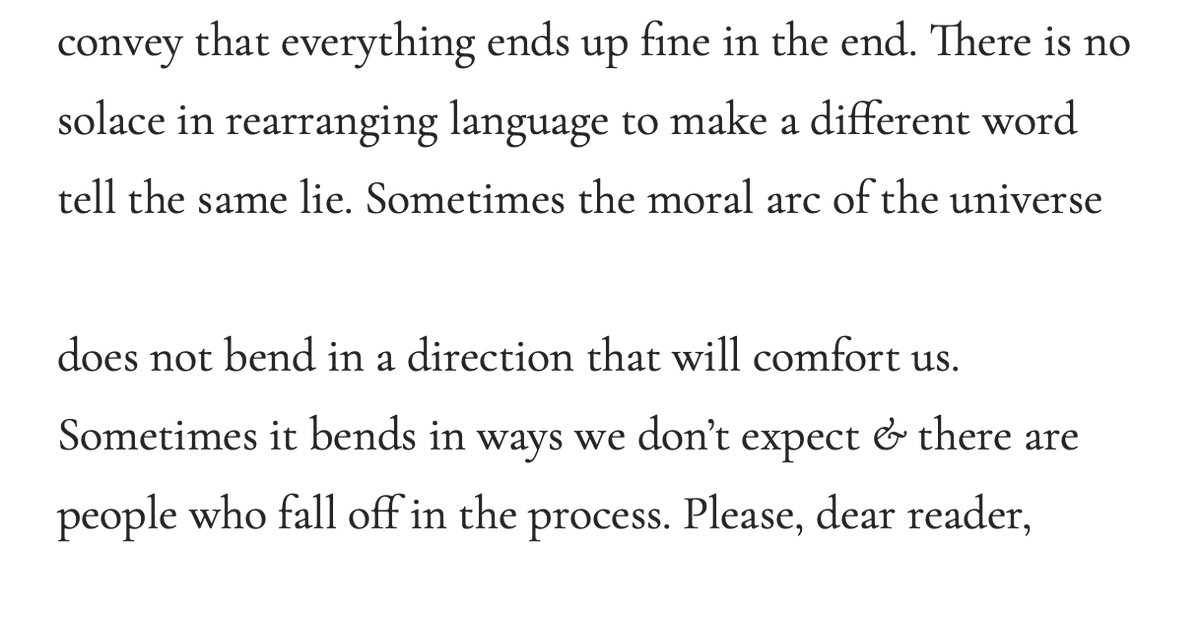After reading this thought provoking piece in @ForeignAffairs, I keep returning to one paragraph early in essay... https://www.foreignaffairs.com/articles/world/2020-04-13/end-grand-strategy">https://www.foreignaffairs.com/articles/...
Alas, it& #39;s more than my allotted characters:
I wonder if consensus is easier to see in hindsight than at the present. Take, for instance, how the world must have looked to the Truman admin in 1945, shortly before it articulated what scholars (generally) agree amounted to a grand strategy to navigate the postwar system
The war was over, but the challenges ahead were daunting. Statesmen struggled to describe the devastation in Europe and Asia-- look at these statements from the time (Taken from FOR THE SOUL OF MANKIND, p. 58).
Was there a clear understanding of the distribution of power? The war confirmed the U.S. was (in one historian’s words) a “preponderant power,” backed by unmatched economic, industrial, and military might. But after experiencing two world wars in as many decades...
...U.S. policymakers still harbored fears that an ambitious power — whether Germany, the Soviet Union, or an unforeseen totalitarian force— could plunge the world into crisis again.
What about stable political and national institutions? The 1930s and 1940s were a period of rapid institutional change in the United States, as new agencies were constructed and bureaucracies adapted to address first an economic crisis and then the demands of a war abroad.
This process continued into the years after the wars-- how about the National Security Act of 1947, which established almost all of the institutions "Presidents [have] found useful when formulating and implementing foreign policy” since.
https://history.state.gov/milestones/1945-1952/national-security-act">https://history.state.gov/milestone...
https://history.state.gov/milestones/1945-1952/national-security-act">https://history.state.gov/milestone...
And domestic consensus? WWII united the American people, but disagreements over the New Deal and other issues resurfaced alongside new anxities. The proper role of the federal government in the economy, the country& #39;s obligation to rebuild Europe rebuild, racial inequities...
highlighted by wartime service....The answers weren’t clear, and the debates were grueling. And on top of it all, the country was led by an accidental president, Truman. In a sign of the divisions, Republicans regained control of Congress in 1947.
(Side note: "To Err is Truman" has got to be one of the best, if ultimately ineffective, political slogans of all time).
I& #39;m not an optimist by nature (family motto: The Light at the End of the Tunnel May be Another Train). When folks celebrate the opportunities opened by disasters, I can& #39;t help but think of this poem by
@ClintSmithIII
https://readwildness.com/19/smith-people ">https://readwildness.com/19/smith-...
@ClintSmithIII
https://readwildness.com/19/smith-people ">https://readwildness.com/19/smith-...

 Read on Twitter
Read on Twitter





